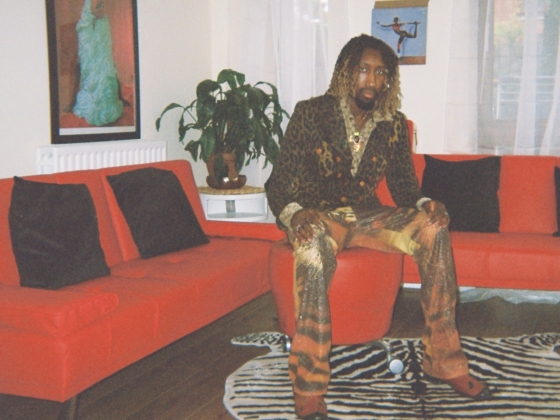Isaiah Rashad is young; only twenty two years of age, hip hop has always surrounded his and his contemporaries’ lives, since their days in diapers. He doesn’t mourn the passing of the “golden era”, nor does he desperately cling to the tenets of his old school, afro-centric, strangely dressed forefathers—their words have been drowned out by a myriad of hustlers, pimps, hoes, tricks, pastors and sisters, all relatively nearer in time and physicality. The music that was once a new form of expression for a selective, radical, but typically truth seeking individuals, had become universal in its approach and message. Its early years, barely remembered, no longer looked upon in awe; hip hop lost some of its novelty and has become a regular part of their lives.
This isn’t meant to devalue the significance that rap and the culture played in Rashad’s and his friends’ lives. In homes often left feeling incomplete thanks to inattentive or absent parents, reeling from the worst effects of the drug epidemic or the war started to combat it, and broken down, due to governmental neglect that led to economic depression, these youths found solace, leaders, and father figures in the music. It was within the bass drum’s thumping, where boys learned to be men; every sample a little nugget of history or of an lost identity; inside each sixteen a sermon for the weak, meek, and afraid—never show your hand, always wear you poker face. However, the circumstances they were trying to escape by diving headfirst into their burnt CDs or radios never disappeared and also educated their understanding of the world; the two often caused internal conflict, sometimes released externally. In the clash between imaginative persona’s and reality, coupled with the confusion that emerges from the rubble left behind, Cilvia Demo was born, Rashad’s debut EP.
In fourteen tracks, Top Dawg Entertainment’s latest budding lyrical dynamo navigates through the dark winding recesses of his mind, scouring through all of the hidden catacombs comprising his memory, patching whatever loose treasures he finds together to formulate some form of a true definition of himself. However, ultimately, the tapestry remains incomplete and incoherent, hence the Demo portion of the title—it is a work in progress. Every song oozes with the aforementioned conflict, as Rashad details his fruitless search for some guidance through life. All of the competing voices in his head or influences are brought to life, which could often make Rashad seem almost bipolar—being lively and animated one moment, then quietly introspective the next—but once his thematic undertaking is recognized, these dramatic shifts become easy to accept and appreciate. This isn’t a project meant to leave listeners with a clear understanding of who Rashad is, but rather a sufficient, yet jumbled idea of what contributes to his current situation and what he wants to accomplish. It is a difficult and abstract goal; thankfully, he delivers more often than not.
Right from the beginning, we are introduced to the dysfunction that Rashad faces. One of the important motifs is the role of fathers and his drunkard dad; while simultaneously questioning his own bouts with narcotics that were seemingly the result of growing up in said environment. “Hereditary” paints an incredibly bleak picture for an intro, sing-slurring about his father teaching him how to “drink his pain away”, giving him an almost genetic predisposition to his ailment. The song also sets the stage for the overall southern, driving, weeded vibe that is maintained all throughout. This laidback ambiance could represent the safety that he needs to feel in order to open up so freely with friends about his life; as if the comfort of his beat-up Honda and chronic can protect him from his reality.
His battle to break free from the influence of his father, doesn’t always work in his favor. He attempts to drown out his sorrows with women and drugs, or just to ignore it altogether, through donning a macho rap persona. On “Soliloquy”, with the assistance of Farhot’s nineties Mobb Deep inspired production, Rashad declares that “I left my father around 97, he was lazy”, painting himself as the dominate force in their relationship. He proceeds to verbally badger the track, beating it up until its bloody and blue, dropping the toughest bars he could come up with that assert his claim of dominance. “Banana” explicitly details his father’s reemergence, but he quickly dismisses the act in the midst of his rising crescendo. Definitely one of the strongest songs on the extended play, his ferocity on this track will wake everyone up: “Just wait till I get this shit perfect” will be a rallying call for years.
However, his plans for escaping his past and parental situation are futile. “Heavenly Father” features Rashad testifying, in the singing tradition of the best southern preachers, about overcoming the tragic thoughts racing through his head, brought about because of the terrible memories he can racall. Most troubling are the incredibly personal lines, “And daddy why you call me while you drunk? And why you never love me when I need it.” Although, he does hint that he no longer needs to look towards his terrible role model anymore, “And I don’t wanna be like you no more.”
Racial issues, especially in his native Chattanooga, Tennessee, present a whole new crop of problems that Rashad uses music to alleviate. Down in the Deep South, where slurs can still be loudly heard and the rebel flags still wave proudly over capital buildings, it is tough to cope with one’s place in society and sanity. Isaiah Rashad chooses to be defiant, demanding that you “don’t call me a nigga, unless you call me ‘my nigga’” (“Ronnie Drake”). Once again hip hop provides some relief, as driving around blasting it creates a sense of freedom. “What you got in that Corolla? Oh, officer,just Boosie Boo and DG Yola/ Won’t let them haters get me down, that’s what they told us (“Modest”).”
As you could probably see already, hip hop looms large over this entire EP. There are numerous references to his favorite or well known artists, including titles (“Ronnie Drake”), shout outs in lines (Lil Boosie and DG Yola in “Modest”), and in his inflection. “R.I.P Kevin Miller” may be the magnum opus of this entire experience; on this track, he fully displays the influence that hip hop has had on his life. His lyrics embody all of the machismo that comes with being a rapper, which he tried to replicate in real life. He breaks down the life lessons taken away from the figures and music of his childhood. “Free Guwop if he in jail, Nigga taught me ‘bout the scale, it was vivid, I was there.” Thankfully, it wasn’t all negative: “Fresh and clean, that Stankonia had me hooked as a child.” All the while, Black Metaphors’ beautiful, ethereal jazz piano progressions steadily play in the background, never getting to loud or fast, even when Rashad’s voice begins to bounce with emotion.
Cilvia Demo has a lot going on, but that’s how it feels in the life of youth in their early twenties. Isaiah Rashad was able to make a body of work that captures the essence of being born in the hip hop generation, during one of the most confusing periods of time. His sense of alienation and bewilderment help to make each line painfully relatable. He now has a purpose: continuing to formulate and spread his testimony to the masses; which, if this is any indication, will be a hearty lesson smothered in the finest southern gravy.









